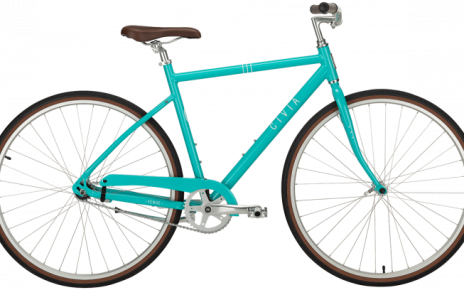The 2013 documentary ‘Half the Road’ started a serious advocacy push for equality within women’s pro racing.
To follow women’s professional cycling in 2019 is to be an advocate for the sport. Across the peloton, female riders regularly take to social media to call out inequality, and to push for better pay, more days of racing, and safer racing conditions. Fans of the sport, likewise, are cognizant of the sizable gap that exists between men’s and women’s pro cycling when it comes to pay, media coverage, and days of racing.
Entire pro races position themselves as a platform to discuss cycling’s gender gap. Pro riders like cyclocross racer Ellen Noble beckon their followers to “bunny hop the patriarchy,” and others raise cash for nonprofits that advance female cyclists.
Pro riders and fans alike have, for years, acted as public advocates for women’s pro cycling. Yet the current culture of women’s cycling advocacy—which taps into social media and harnesses the power of cycling brands and media outlets—in a large part stems from a similar source.
In 2012, then ESPN producer and racer Kathryn Bertine pitched the sports media company on an idea to produce a documentary about pro women’s cycling.

When the company balked at the idea, Bertine raised the funds online, and produced the project herself. Bertine wanted the film to touch on both the sport’s glaring inequalities—most pro women are paid a pittance compared to men and have far fewer race days—and the athletes themselves.
“We didn’t want it to be some two-hour exposé that sounded like a bitchfest,” Bertine told VeloNews. “We wanted viewers to be pissed about inequality, and to develop a love for the positive aspects of the sport.”
During her interviews with Marianne Vos, Emma Pooley, and other star riders, Bertine asked about a women’s version of the Tour de France, and whether the riders would race such an event. Most riders said they would. The questioning sparked an idea: Why not make a concerted push to convince Amaury Sports Organization, owners of the Tour, to create a women’s race?
During the 2013 Tour, Bertine launched a coordinated advocacy movement, alongside Vos, Pooley, and others. They built a website with a manifesto and a business plan, and then circulated a petition alongside a video on social media. The women hammered home the gap in pay and racing opportunities that existed between men and women, and showed how much smaller this gap was in other sports.
The movement spread across the women’s peloton, and then throughout pro cycling’s media landscape and fanbase.

“We didn’t just say ‘we want a race,’ we said ‘we will sit down with you, get a meeting, and find a way to make it happen,” Bertine said. “I knew they wouldn’t listen to me, but with Emma and Marianne’s involvement, we had the power to create change.”
The petition and the film, titled “Half the Road,” had a major impact. In 2014 ASO launched the La Course by Le Tour de France, a one-day WorldTour race for women. The dialogue created by ‘Half the Road’ continued throughout the women’s pro cycling community. The lasting impact of the film and the movement was to provide a game plan for how to push cycling’s power brokers for better pay, more days of racing, and other basic elements of the sport.
“You create pressure groups to focus on prize money, equal opportunity to race, and then media rights, so that it’s less overwhelming to try and fix everything yourself,” Bertine said. “Having more women raise their voices for a specific area is a tremendous asset.”
Since then, women have pushed the UCI for a mandatory minimum wage, mandatory television coverage at WorldTour races, among other plans for equality. The push for equality is ongoing, of course. However that push now reaches beyond the sport, and helps define what it means to be a participant and fan of pro women’s racing.



